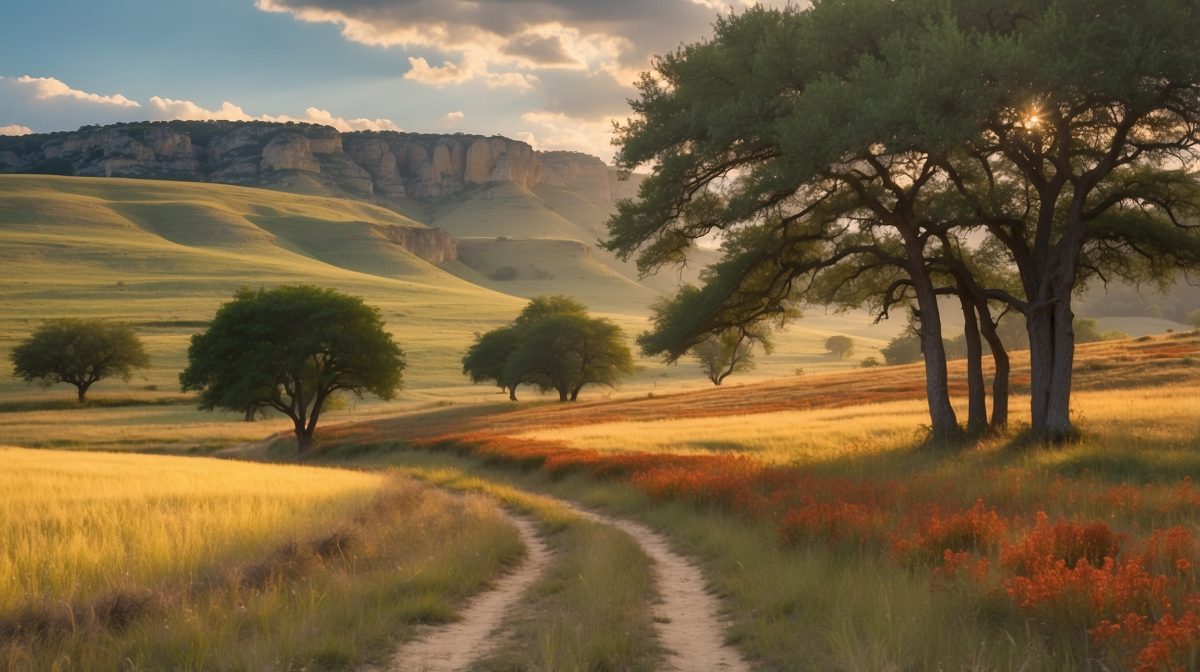Now, this ain’t just a history lesson; it’s a heritage hootenanny. We’re talkin’ about a time when hardy souls from across the ocean brought their dreams to the rolling hills and wide-open skies of Texas. They came seekin’ freedom and opportunity, and what they found was a place to call home. So, let’s tip our hats to these early settlers and explore the indelible mark they left on our culture, our cuisine, and our community. Get ready to be charmed by the story of German resilience and ingenuity right here in the heart of Texas.
The Early Pioneers
Now, let’s hark back to the very beginnings of German immigration to Texas, focusin’ on when it all started. The year was 1842 when a group of German noblemen cooked up the idea to plant a new settlement in the Lone Star State. They formed the Adelsverein, also known as the Noblemen’s Society, with the aim of creatin’ a new homeland for their countrymen. It was a bold move, as brave as a Texas ranger, and it set the stage for a whole new chapter in our state’s history.
The first waves of settlers, bless their hearts, made their way to Texas soil in the 1840s. They arrived with nothin’ but hope in their pockets and a fierce determination to carve out a life in the untamed wilderness. These folks were pioneers in the truest sense, settin’ the foundation for generations to come. The Adelsverein played a pivotal role in organizin’ the settlements, wranglin’ up folks from the old country and helpin’ them settle in places like Fredericksburg and New Braunfels. It was the start of somethin’ special, and their legacy lives on to this very day.
Challenges and Settlements
Now, these German folks didn’t have it easy, I tell ya. The journey was fraught with hardships, from treacherous ocean voyages to the rough and tumble life on the frontier. But these settlers were as tough as Texas leather, and they didn’t let nothin’ stand in their way. Upon arrival, they faced down challenges like language barriers, unfamiliar landscapes, and the Texas heat, which can test the mettle of any man or woman. But they persevered, and their grit and gumption are a testament to the enduring spirit of the Texas Hill Country.
They went on to establish the first German settlements, includin’ the charming towns of Fredericksburg and New Braunfels. These communities became little pockets of Germany right here in Texas, complete with quaint biergartens and streets lined with fachwerk architecture. But these settlers weren’t just stickin’ to their old ways; they were adaptin’ to Texan life, blendin’ their traditions with the local customs. It was a marriage of cultures that created somethin’ truly unique, and it’s a big part of what makes the Texas Hill Country so darn special.
Cultural Impact
Dive into the heart of the Texas Hill Country, and you’ll see the German influence as clear as day. From the steep-pitched roofs of the homes to the sound of polka music fillin’ the air during festival season, it’s a cultural fusion that’s as delightful as pecan pie. These German settlers brought with them a rich tapestry of traditions that we’ve woven into the fabric of our community. They left their mark on our architecture, with sturdy, practical buildings that have stood the test of time.
And let’s talk about the festivities – oh, the festivities! Oktoberfest and Wurstfest are just a couple of the German-Texan traditions that we hold dear, celebratin’ the food, the music, and the camaraderie that these settlers brought with them. From bratwurst to beer, the German impact on local cuisine is undeniable, and it’s a flavor that we Texans have embraced with open arms. Education, too, was shaped by these pioneers, with many schools teachin’ both English and German to the young’uns, keepin’ the language alive for generations.
Lasting Legacy
If you’re wanderin’ through the Texas Hill Country, you’re bound to stumble upon historical markers and sites that honor the German heritage of the area. These landmarks are like love letters to the past, remindin’ us of the folks who came before and the trails they blazed. The descendants of those original settlers are still here, mind you, and they’re as proud as peacocks of their roots. They continue to preserve their history and traditions, passin’ down stories and customs that are as important today as they were back then.
Modern-day festivals and events keep the German-Texan culture alive and kickin’, celebratin’ a shared history that’s as vibrant as a Hill Country sunset. It’s a testament to the enduring bond between the people and the land, a connection that’s been nurtured for over a century. So, whether you’re dancin’ to a polka tune or raisin’ a glass at a local biergarten, remember that you’re part of a legacy that’s as rich as the soil beneath your feet.
Conclusion
As we wrap up our journey through time, it’s clear that the bond between Texas Hill Country and its German roots is as strong as ever. It’s a relationship built on mutual respect, hard work, and a love for the land that’s as deep as the Texas bluebonnets are blue. Rememberin’ and celebratin’ the history that shaped this unique region is crucial, for it’s the stories of our ancestors that give us a sense of place and purpose.
So, the next time you find yourself sippin’ on a Shiner or tuckin’ into a plate of schnitzel, tip your hat to those early German settlers. They’re the reason we have such a rich heritage to celebrate, and their spirit lives on in every corner of the Texas Hill Country. Thanks for walkin’ this road with me, and may the legacy of our German-Texan forebears continue to thrive for generations to come.
FAQs
What year did the first German settlers arrive in the Texas Hill Country?
The first German settlers arrived in the Texas Hill Country in the 1840s, with many comin’ over in the early part of the decade.
Why did Germans choose to settle in the Texas Hill Country?
Germans chose to settle in the Texas Hill Country for the promise of land, freedom, and opportunity in a new world far from the political unrest back home.
How did the German settlers adapt to life in Texas?
The German settlers adapted to life in Texas by combinin’ their own traditions with local customs, learnin’ English, and applyin’ their skills to the agriculture and industry of the region.
What are some German traditions that have been preserved in the Texas Hill Country?
Some German traditions that have been preserved include annual celebrations like Oktoberfest and Wurstfest, German-style architecture, and the continued use of the German language in some communities.
Are there any towns in the Texas Hill Country that were founded by German settlers?
Yes, there are several towns in the Texas Hill Country that were founded by German settlers, includin’ Fredericksburg and New Braunfels.


